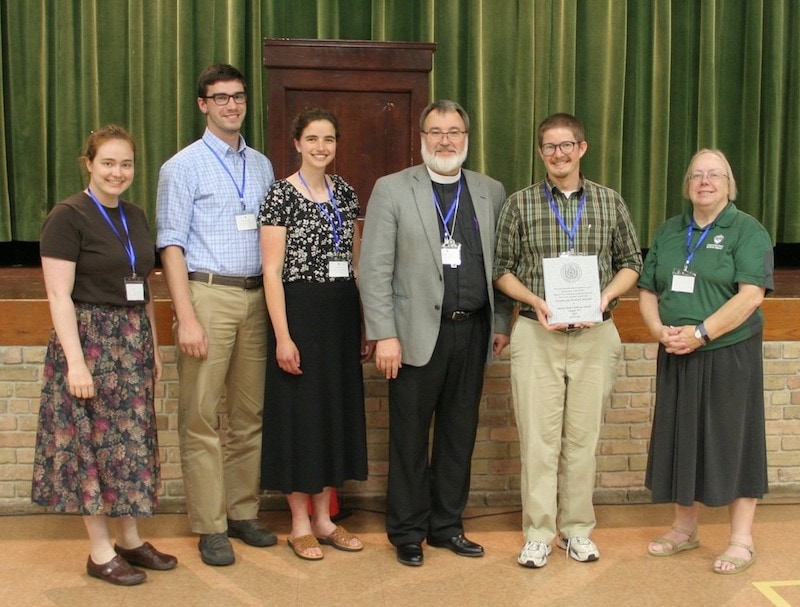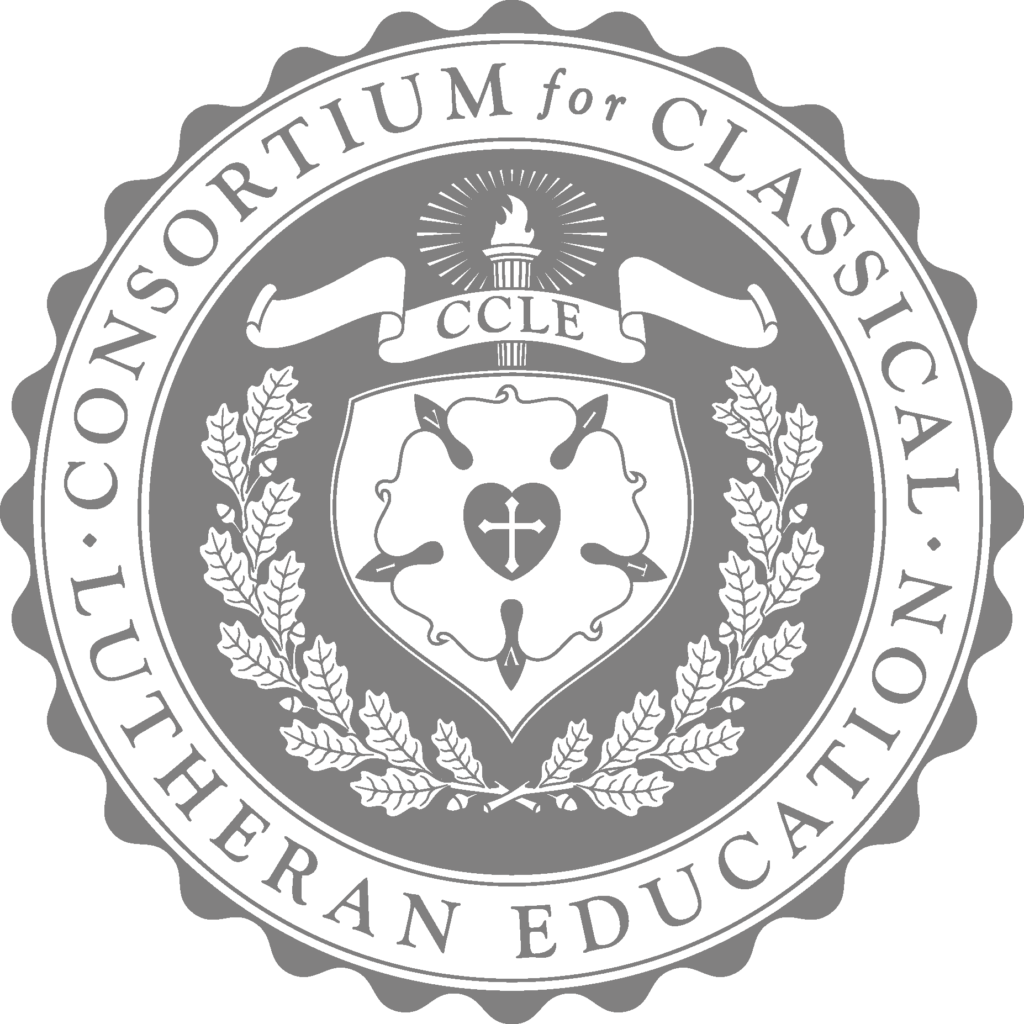Accreditation
Mount Hope Lutheran School is accredited by the Consortium for Classical Lutheran Education (CCLE). Information about CCLE and the accreditation process is available at the CCLE website.

CCLE MISSION
The Consortium for Classical Lutheran Education advances and promotes classical education within the context of confessional Lutheranism among teachers, administrators, pastors, and home educators by providing standards, conferences, professional development, resource materials, and consulting service.

CCLE’s Marks of a Classical Lutheran School
[These marks are used for evaluating schools in the accreditation process]
I. The School confesses and incorporates a commitment to the Gospel of our Lord Jesus Christ in all aspects of its educational mission as it is taught and confessed in the inspired sacred Scriptures and the confessional writings of the Evangelical Lutheran Church.
A. This faith commitment is explicitly articulated in the school’s charter as expressed in the constitution and bylaws of the sponsoring congregation or governing body.
B. This faith commitment shapes – and is reflected in – the school’s faculty, staff, instructional program, educational philosophy, and worship life.
1. Faculty and Staff confess and reflect this commitment in their personal faith, worship life, and professional service to the school.
2. A Lutheran world-view shapes, integrates, and unites the instructional programs of the school – its courses of study, educational resources, and priorities.
3. Catechesis – teaching of the faith with confession and prayer – is central in the instructional life of the school on all grade levels in accord with the school’s confessional commitment.
4. Worship life uses and teaches the historic forms of liturgy and hymnody as they express and convey the gifts of the pure Gospel in Word and Sacrament.
II. The school demonstrates a commitment to a classical approach to curriculum and instruction within the framework of its confessional, Lutheran character.
A. The school’s curriculum and instruction is shaped on all levels by a pedagogy that uses the liberal arts to progressively equip learners to carry out successfully their own inquiries into what is true, good, and beautiful.
1. These liberal arts are taught and exemplified by instructional strategies that are informed and shaped by levels of student intellectual maturity and aptitude.
2. All faculty and staff are committed to classical education and are willing to grow in their understanding and appreciation of it.
3. Each member of the faculty and staff demonstrates ongoing learning in his assigned areas of responsibility.
B. The scope and sequence of the school’s curricular and co-curricular programs are normed by the goal to raise up a virtuous, educated person for heavenly and earthly citizenship—the life of faith in Christ and loving service to neighbor in the offices of one’s vocation.
1. The courses of study to be mastered by students are shaped by the significant fund of information to be passed on to the next generation for responsible citizenship in the Church and world.
2. The basic subject areas of English language skills (reading, spelling, vocabulary, and writing), Latin, mathematics, history, science, geography, literature, music, art, physical education, and theology form the primary courses of study on all elementary levels of instruction.
3. The trivium (grammar, logic, rhetoric) and quadrivium (arithmetic, geometry, music, astronomy) inform the courses of study in all elementary levels of instruction.
4. Instruction in Latin, even in the early grades, is integrated into the strategies of teaching linguistic grammar and syntax and serves as a foundation for increased mastery of English and other foreign languages.
5. The higher language skills of dialectical thinking and analysis, and then later, rhetorical uses of language (written and oral) are exemplified by instructors on all levels, but then, integrated into strategies for student mastery in the higher grades 7-12.
6. The upper grades instructional program (grades 7-12) will reflect an increasingly sophisticated exposure and mastery of the primary resources of the literature of the Western canon (the Great Books) that are age appropriate.
7. The upper grades instructional program (grades 7-12) will incorporate increasingly rigorous instruction in areas of the quadrivium.
III. The school’s institutional governance establishes and expresses clearly articulated rules, regulations, and responsibilities that are in harmony with God’s revealed orders of creation—for students, parents, staff, faculty, and board members.
A. The school has written board, faculty, staff, parent, and student policy manuals and has secured appropriate commitments.
B. Board members, faculty, staff, parents, and students give ample evidence to their knowledge and compliance of the school’s policies for conduct and responsibilities.
C. The Board and Director of the Early Childhood Program provide evidence of compliance with all state regulations for annual licensing for Early Childhood Programs, including all personnel, health, scheduling, student-teacher ratios, and space-usage licensing and fees.
D. The school’s governance possesses and implements ways and means for the continuing education of its staff in the classical approach—appropriate to the levels of the School’s educational program.
IV. A strategy is in place to regularly evaluate all aspects of the school in light of its classical and confessional Lutheran commitments with established ways and means to implement continuous improvement.
Revised and Approved by the Board of Directors of the CCLE
9 February 2023
